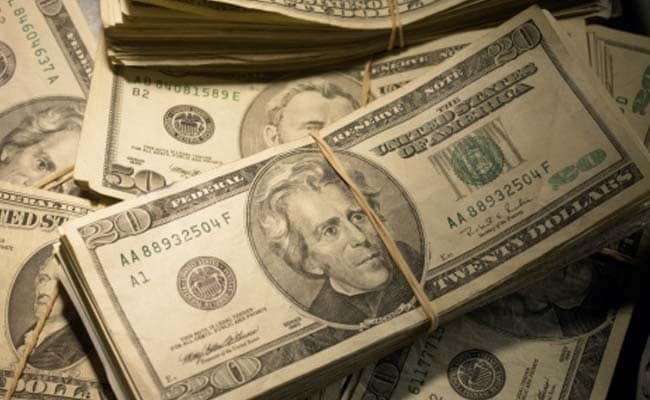The
dollar stayed bid early in Asia on Thursday as the market geared up for
a deluge of U.S. data that could back expectations for the Federal
Reserve to lift interest rates sooner rather than later.
The euro, meanwhile, remained under a cloud with Greece's debt crisis unlikely to be resolved before Sunday's referendum. Prime Minister Alexis Tsipras on Wednesday urged Greeks to reject an international bailout deal, souring hopes of any breakthrough.
The dollar index came within a whisker of a three-week peak set on Monday. It last stood at 96.321, following a 0.8 per cent gain on Wednesday.
Against the yen, the greenback fetched 123.22, pulling further away from a five-week trough of 121.93. The euro slipped to $1.1044, continuing to retreat from Monday's high of $1.1279.
Investors will be fed a heavy diet of U.S. data from durable goods to nonfarm payrolls ahead of a holiday on Friday, in observance of the July 4 Independence Day.
As a preview of the all-important payrolls data, the ADP National Employment Report on Wednesday showed private employers added 237,000 jobs in June, the biggest gain since December and ahead of the 218,000 forecast.
"A further improvement in the labour market may boost bets for a Fed rate hike in 2015," said David Song, currency analyst at DailyFX. "However, a dismal development risks a further delay in the Fed's normalisation cycle."
The dollar notched up solid gains against commodity currencies, particularly the New Zealand dollar which fell as far as $0.6708, a low not seen since June 2010.
Not helping the kiwi dollar, international dairy prices slumped to a six-year low as demand for milk powder continued to fall just as supply is expected to grow.
Also under fire, the Canadian dollar slid to its lowest in over two months at C$1.2598 per U.S. dollar in thin holiday trade. Canadian markets were closed on Wednesday for a public holiday.
The loonie was already in the crosshairs of sellers after the Canadian economy unexpectedly shrank in April. Data on Tuesday showed gross domestic product fell 0.1 per cent from March, confounding forecasts for a gain of 0.1 per cent.
It was the fourth consecutive monthly decrease that bodes poorly for a second-quarter pick-up in growth that the Bank of Canada is looking for.
The euro, meanwhile, remained under a cloud with Greece's debt crisis unlikely to be resolved before Sunday's referendum. Prime Minister Alexis Tsipras on Wednesday urged Greeks to reject an international bailout deal, souring hopes of any breakthrough.
The dollar index came within a whisker of a three-week peak set on Monday. It last stood at 96.321, following a 0.8 per cent gain on Wednesday.
Against the yen, the greenback fetched 123.22, pulling further away from a five-week trough of 121.93. The euro slipped to $1.1044, continuing to retreat from Monday's high of $1.1279.
Investors will be fed a heavy diet of U.S. data from durable goods to nonfarm payrolls ahead of a holiday on Friday, in observance of the July 4 Independence Day.
As a preview of the all-important payrolls data, the ADP National Employment Report on Wednesday showed private employers added 237,000 jobs in June, the biggest gain since December and ahead of the 218,000 forecast.
"A further improvement in the labour market may boost bets for a Fed rate hike in 2015," said David Song, currency analyst at DailyFX. "However, a dismal development risks a further delay in the Fed's normalisation cycle."
The dollar notched up solid gains against commodity currencies, particularly the New Zealand dollar which fell as far as $0.6708, a low not seen since June 2010.
Not helping the kiwi dollar, international dairy prices slumped to a six-year low as demand for milk powder continued to fall just as supply is expected to grow.
Also under fire, the Canadian dollar slid to its lowest in over two months at C$1.2598 per U.S. dollar in thin holiday trade. Canadian markets were closed on Wednesday for a public holiday.
The loonie was already in the crosshairs of sellers after the Canadian economy unexpectedly shrank in April. Data on Tuesday showed gross domestic product fell 0.1 per cent from March, confounding forecasts for a gain of 0.1 per cent.
It was the fourth consecutive monthly decrease that bodes poorly for a second-quarter pick-up in growth that the Bank of Canada is looking for.





